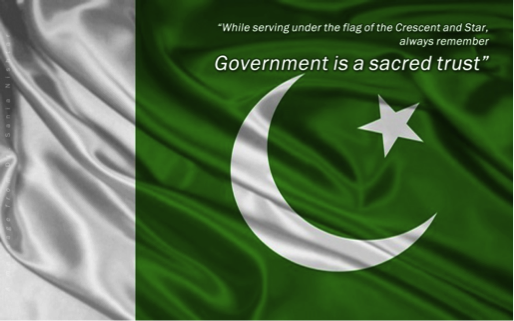Interim Government: Pakistan Inspires
About 18 months ago at the World Economic Forum in Davos in January 2012 I had the good fortune to walk out of a lunch meeting on global health issues with Dr. Sania Nishtar, most recently Caretaker Federal Minister in Pakistan’s interim government and Founder of the internationally renowned health NGO Heartfile. My admiration for her at the time pales in comparison to what I have had the privilege of witnessing these past two months. Respectfully, the recent news of Pakistan has been fraught with violence, memories of past political upheaval, and a tumultuous pre-election period. However, within the political complexity and blatant criminality, Sania’s level of dedication to government service, sophistication of thought, and sheer will to forge ahead through multi-faceted challenge deserves to steal the spotlight.
After two months of extraordinary efforts as minister, she decided that it was critical that her hard work as interim minister not be lost in transition. Like so many great leaders, she has gone above and beyond her responsibilities to draft single-handedly a series of rigorous yet inspiring papers (the “Handover Papers”) detailing the factual learning, policy and practical analysis, status of various initiatives undertaken, and a broad range of policy and tactical recommendations for her successor ministers. The Handover Papers comprise a series of five individual papers, one for each ministry and one addressing governance issues more generally.
The Handover Papers fly at many different altitudes to target a variety of objectives simultaneously. First, they highlight critical themes (improving the policy-making process and regulatory capacity, assuring accountability and transparency, remaining strategic rather than project-based, building capacity across a range of organizations, making constitutionally guaranteed rights known, enhancing coordination between the federal government and provinces, and developing intra-institutional trust). Second, they reinforce the need for synergies and coordination among ministries, and the potential leverage effects of both. Third, they highlight misalignments, for example from innovation through scientific research to nationally-needed outcomes – with the overlay of funding misalignments and failure to engage relevant parties such as academic institutions. Fourth and finally, they target specific actions: documents to be signed by the relevant ministers, specific follow-up actions, recommendations of a think tank to pick up, advocacy efforts, or communication with a multilateral organization to name a few.
If it isn’t clear by now, these Handover Papers exemplify the highest standards of service to government in each of the following areas:
- Efficiency and efficacy. No government has resources to waste. Her process is one of efficiency to ensure all of the hard work and resources spent during the time of the interim government are picked up from where they left off rather than dropped or replicated. Thanks to her road map, her successors can hit the ground running on the first day.
- Accountability and transparency. Her process exemplifies accountability and transparency. Through the Handover Papers, she holds herself and others on her teams accountable for their work to the people of Pakistan and to the other members of the interim government. The transparency will be assured by posting the papers and summaries on the official government web site. This will allow the Pakistani people, as well as researchers, academics, and the public internationally, a real time view of the Pakistani governmental transition. I sincerely hope the mainstream press and the social media pick up this very positive story.
- Neutrality. Because these papers were written with a spirit of neutral, factual objectivity, the well-being of Pakistan and the Pakistani people ring through all of the recommendations.
- Inspiration. Dr. Nishtar also personifies capacity-building: her NGO Heartfile, her government, and her personal capacity. (Among other examples in addition to the Handover Papers, Margaret Chan, Director General of the World Health Organization, noted of her initiative, “The World Health Organization applauds the decision of the Government of Pakistan to consolidate federal responsibilities in the health sector under one division.”) She is a personal inspiration to those in government and far beyond.
Perhaps most importantly, the Handover Papers signal opportunity. Opportunity to integrate a new process with all of the above elements in Pakistan’s future governance for all ministries and all transitions. Opportunity for the new government to achieve unprecedented progress with this springboard to avoid time-wasting. Opportunity to unite and coordinate across the country, the ministries, the issues, and ultimately the people. Opportunity to enhance greatly Pakistan’s international standing. Finally opportunity to trigger a positive upward spiral in all of the ministries she served.
Lastly, these Handover Papers reflect Dr. Nishtar’s dedication to projecting a positive image of her country – to working toward the possible and refusing to let obstacles become excuses. It is with the greatest respect and admiration that I hope others follow.
Dr. Nishtar started her term with a letter to her team insisting on the highest standards of integrity, accountability, and transparency and an inspirational visual reminder that service to the Pakistani government was an enormous privilege and sacred responsibility. She completed her term with a unique gift to all government functionaries – a “wall paper” as she calls it with a message inscribed “government is a sacred trust,” accessible through the main page of the Government of Pakistan’s main page.
Copyright 2013 Susan Liautaud & Associates Limited. All rights reserved.
